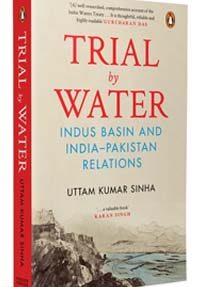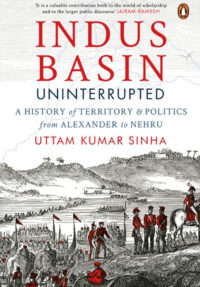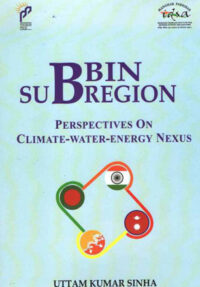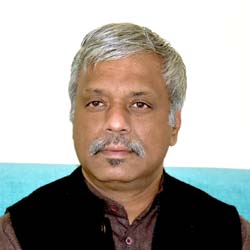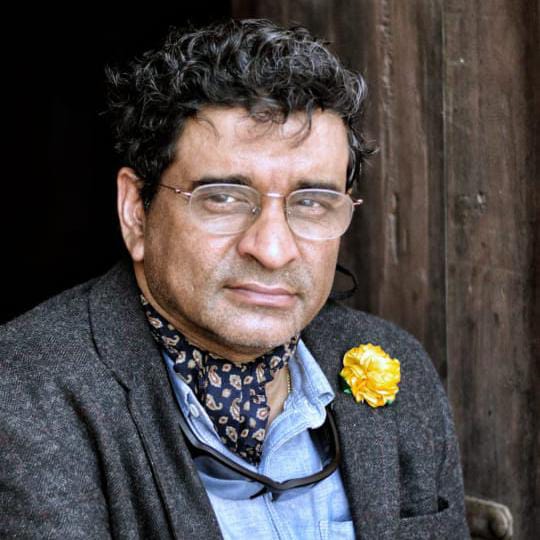King, Governance, and Law in Ancient India
King, Governance, and Law in Ancient India by Patrick Olivelle is an annotated translation of Kautilya’s Arthasastra. It has 15 chapters and three appendices, which allow the author to stay close to the original text.
Why is the UN Security Council Discussing Climate Change?
The G8, Pakistan and the Pacific island states have pushed for a discussion in the United Nations (UN) Security Council on the security dimensions of climate change. As the issue gains momentum at the global and regional levels, India as an emerging power that continues to use energy and other natural resources, at the cost of stressing other countries, particularly its neighbours, will need to formulate a response.
Overcoming the Ways of Matsya Nyaya
Ancient Indian political thought as given in the niti (moral law) lays down that matsya nyaya (big fish swallowing the smaller fish), which is a law of nature, must be eradicated. However, in spite of best intentions it continues to prevail in internal and international politics. Society is bound together by dharma (justice), which is the great protecting principle, and economic prosperity, moral welfare and cultural advancements are the functions of justice.
The Arctic: An Antithesis
The Arctic ice is melting faster than predicted. In August 2012, calculations based on the satellite imagery indicated that the summer sea ice loss was 50 per cent higher than earlier estimates. 1 Scientific evidence now suggests that the Arctic, by the middle of the century, will be ice free in the summer. Scientists call it the ‘Arctic amplification’—the reduction in the ice cover not only reduces the reflection of the sunlight but also increases the absorption of heat as the darker water is exposed.
Relevance of Kautilya’s Arthasastra
The community of scholars needs to study Kautilya's Arthasastra and apply his concepts to political theory and other fields of enquiry, such as intelligence, internal security, war, foreign policy, sociology, political psychology, law, accounting and management. In the past, scholars had to memorise the sutras. This may not be possible now given the declining knowledge of Sanskrit. However, this is no longer a hindrance. The first ever English translation of the text was carried out by Shamasastry, but there are now other English translations of the Arthasastra such as that by R.P.
Peak Oil and Implications for India
The basic point is that crude oil is a finite resource. Hence, the issue is not ‘if’ crude oil peaks and availability declines, but ‘when’ it peaks and starts its decline. Peak oil is the theoretical point in time at which oil production peaks and begins to fall. Here we refer only to peaking of conventional oil.
India’s Growing Energy Woes
The power blackouts on 30 July 2012, first in north India and again in north, north-east and eastern India, which plunged seven northern Indian states into darkness for several hours, disrupting normal life, underline the critical state of the country's energy security. Apart from the discomfort and inconvenience to residents, several essential services such as water supply, city transport systems (including the metro and national railways), mining, health and banking and financial sectors, came to a standstill for hours.
From Hindi to Urdu: A Social and Political History
Hardly any language in the subcontinent has a history as contested as that of Urdu. The history of Urdu is not just a story of linguistic evolution, but of the evolution of culture, of societies and of communities. Thus, undertaking the task of narrating this journey is in itself an act of courage and Tariq Rehman does it wonderfully well.
On Your Marx!
When the Berlin Wall was brought down in 1989, followed by the subsequent disintegration of the Soviet Union, one is unsure whether Francis Fukuyama was actually singing a ditty with the ‘End of History’ as the tag line (to the tune of ‘We Are the World …’, the famous Michael Jackson song). Fukuyama celebrated his ‘free at last!’ moment by writing a book called End of History, for which he has had to apologise a few times since.
Will the Indus Water Treaty Survive?
The Indus Water Treaty (IWT) is the most significant confidence-building measure between India and Pakistan. Despite the wars and hostilities, the IWT has functioned well since it was signed in 1960. However, one cannot ignore the challenges of future supplies of fresh water between the two countries. The article delves into a historical account of how the treaty came about, the salient features of the treaty and examines whether ‘water rationality’ will continue to govern the riparian relationship or whether ‘water sharing’ will open up a new front of contentious politics.


